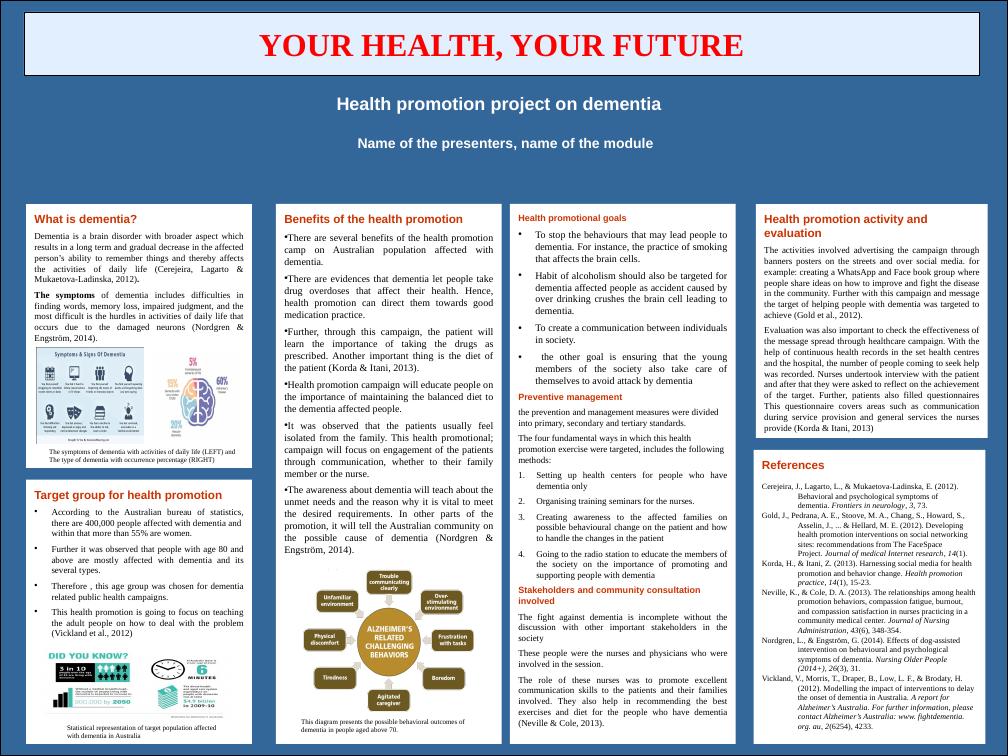Health Promotion Project on Dementia - Your Health, Your Future
Create a pictorial representation for a health promotion project on dementia, targeting adult individuals. The representation can be in the form of a poster, flyer, newspaper advertisement, or information brochure. The word limit for the accompanying text is between 5-1000 words, depending on the type of pictorial representation. APA referencing style is required.
Added on 2023-06-14
About This Document
Health Promotion Project on Dementia - Your Health, Your Future
Create a pictorial representation for a health promotion project on dementia, targeting adult individuals. The representation can be in the form of a poster, flyer, newspaper advertisement, or information brochure. The word limit for the accompanying text is between 5-1000 words, depending on the type of pictorial representation. APA referencing style is required.
Added on 2023-06-14
End of preview
Want to access all the pages? Upload your documents or become a member.

